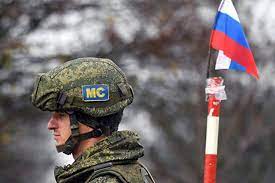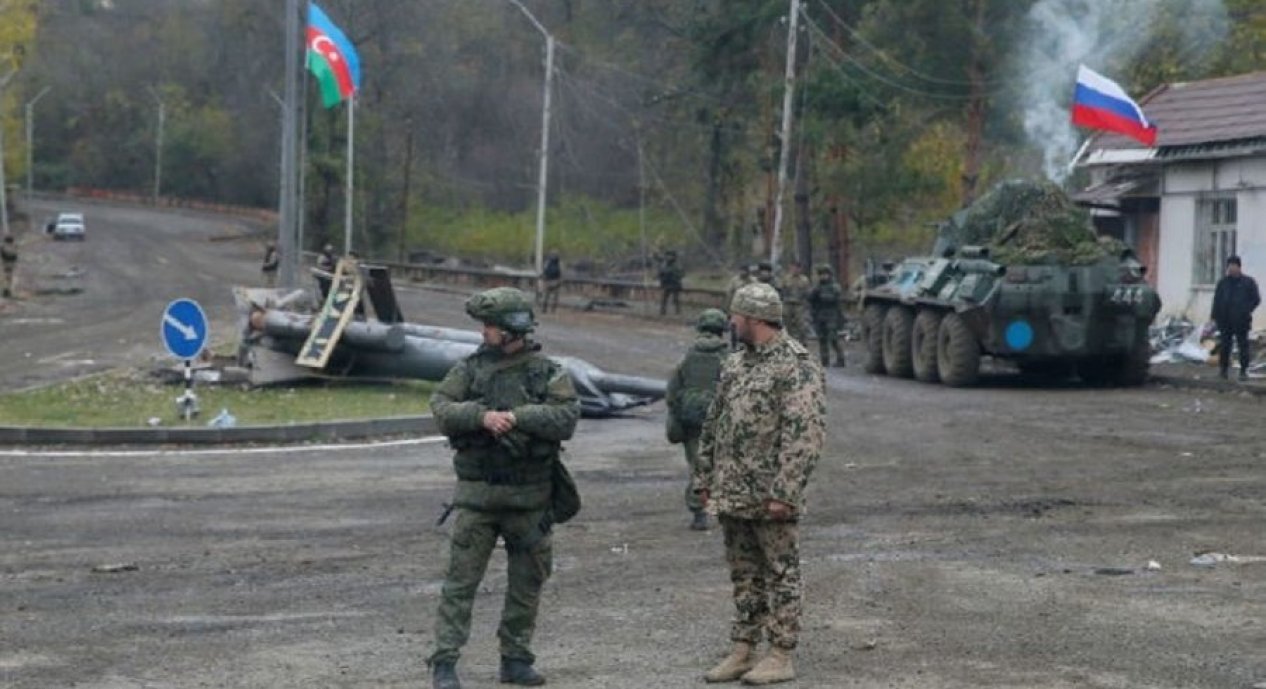
Azerbaijan was physically occupied on November 10, 2020, Azerbaijani politician, chairman of the Citizen and Development Party Ali Aliyev said on Bumerang YouTube channel. He noted that on that day, troops of another state entered the territory of Azerbaijan.
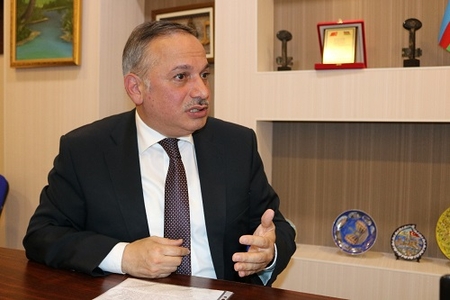
First of all, Ali Aliyev means the signing of a tripartite statement as a result of the Second Karabakh War and the deployment of a Russian peacekeeping contingent in the selected territories in Karabakh.
Before going on to clarify the claim, let’s look at the concept of ‘occupation.’
Occupation (Latin occupatio) in the general sense is the forcible seizure of territories with the help of armed forces. In addition, according to international law, military occupation also means the usurpation of control by one country by force. According to the Geneva Convention, the aggressor must respect human rights and prevent deportations and massacres. It must ensure the inviolability of private property, religious community, cultural, educational, scientific and humanitarian institutions. For example, Armenia ignored these demands when occupying Nagorno-Karabakh and surrounding areas. The population of the occupied regions was subjected to massacres and deportations, their property, religious community, cultural, educational, scientific and humanitarian institutions were completely destroyed and looted.
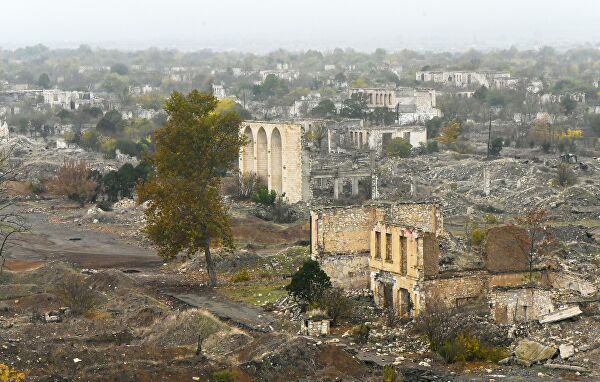
As a result, more than 1 million Azerbaijanis became IDPs. About 4,000 Azerbaijanis went missing, including 67 children, 265 women and 326 elderly people, more than 2,000 Azerbaijanis were captured and taken hostage by Armenians, 900 settlements, 150,000 houses, 7,000 public buildings, 693 schools, 855 kindergartens, 695 medical institutions, 927 libraries, 44 temples, 9 mosques, 473 historical monuments, palaces and museums, 40,000 museum exhibits, 6,000 industrial and agricultural enterprises, 160 bridges and other infrastructure facilities were destroyed.
As for the statement of November 10, 2020, and the deployment of Russian peacekeepers in Karabakh, it should be noted that this document was the result of Armenia’s defeat in the Second Karabakh War. More specifically, the Armenian army was forced to sign this document after losing most of the occupied territories in Karabakh. During the war, the Azerbaijani side offered Armenia a ceasefire in exchange for its commitment to withdraw from the occupied territories and give a specific schedule. By the way, Russian President Vladimir Putin also confirmed that such an offer was made to Armenia.
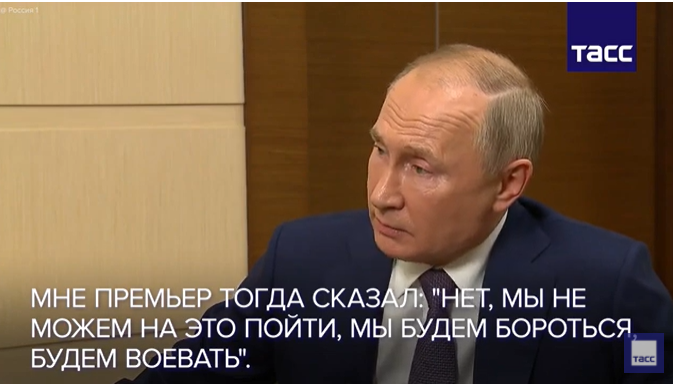
However, the Armenian leadership didn’t agree to these conditions. As a result, Armenia suffered a heavy defeat, completely lost the opportunity to resist and expressed desire to sign a document through the Russian leadership. This was assessed by the Azerbaijani leadership as an act of surrender. Even most Armenian politicians have equated the situation facing Armenia with capitulation.
Vadim Mukhanov: War brought collapse and national catastrophe to Yerevan
By the way, it was announced by the Russian leadership that Armenia signed this document in a very difficult situation. In an interview with Rossiya 1 channel, Russian President Vladimir Putin described some of the details of the November statement as ‘very difficult’ for Armenia. “The situation in the zone of military operations reached such a point, that, frankly speaking, a decision had to be made,” Putin said. He also noted that Armenia’s refusal to reach an agreement on Karabakh would be suicidal for the country.
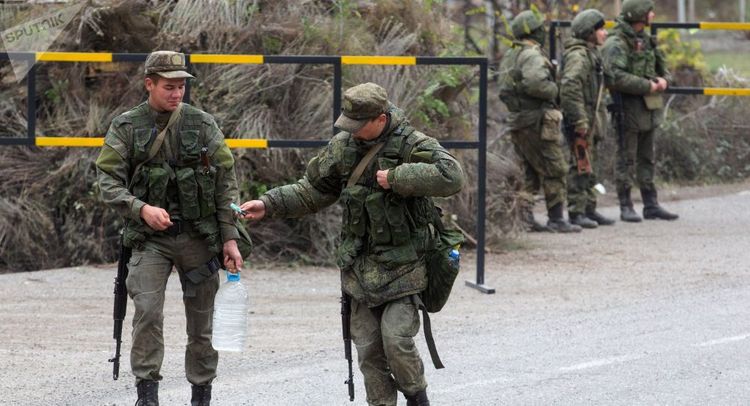
In other words, it seems that the Azerbaijani side didn’t have to sign this agreement, but Armenia was forced to sign it. This gives reason to say that Azerbaijan’s position and consent were taken into account in the subsequent processes.
In this sense, it is not correct to equate the deployment of Russian peacekeepers in Karabakh with the occupation after the Armenian leadership acknowledged its defeat and signed a trilateral statement. First, Russian peacekeepers were deployed with the consent of Azerbaijan, not by attacking the territory of Karabakh. Second, the number of contingents and military equipment (1,960 servicemen, 90 armored vehicles, 380 cars and special equipment - ed.) has been determined in advance. The third and most important document defines the period of the peacekeeping mission’s stay in Karabakh (5 years). These points are reflected in paragraphs 3 and 4 of the statement.
Two more points should not be overlooked here: first, at the request of the Azerbaijani side, the statement included the establishment of a peacekeeping center to monitor the ceasefire (paragraph 5 of the statement). According to this paragraph, in January 2021, the Monitoring Center was launched in the Aghdam district. The center has 60 Turkish and Russian servicemen from each side. Secondly, the Russian troops stationed in Karabakh were not randomly selected from any base, this contingent is part of the 15th Special Peacekeeping Motorized Rifle Brigade of the Russian Armed Forces. This brigade is the only group specially created in Russia to participate in UN-mandated peacekeeping missions.
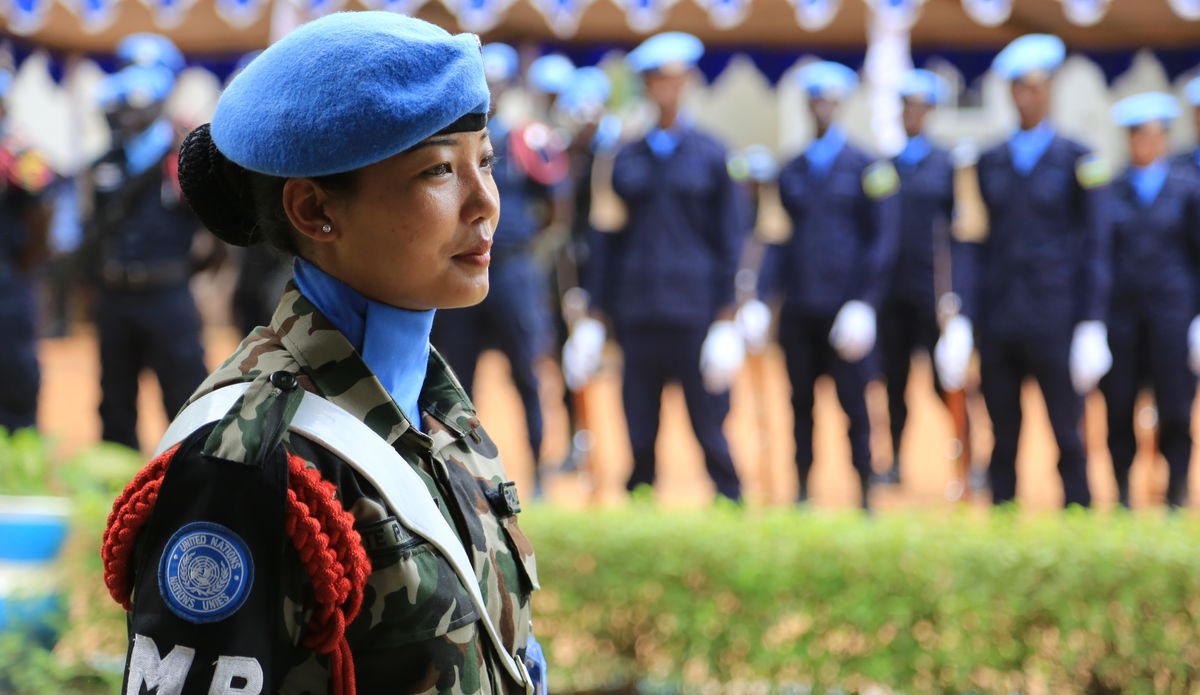
By the way, peacekeeping missions have been organized since 1948 in order to establish peace and ensure security after the conflict. So far, more than 70 such missions have been carried out. Peacekeepers are currently conducting missions in Kosovo, Afghanistan, Iraq, Haiti, Cyprus, Lebanon, Syria, South and North Sudan, Mali, Cote d’Ivoire and other conflict zones. In total, there are 13 UN-mandated and 7 non-UN-mandated peacekeeping missions. Meanwhile, the legal framework for the activities of non-UN peacekeeping missions and their peacekeeping operations are based on international law. This means that the Russian peacekeeping mission in Karabakh is also based on the principles of international law.
The basic principles of peacekeeping missions are:
- Peacekeepers are deployed in the relevant area with the consent of both parties to the conflict;
- Peacekeepers must be impartial and neutral;
- Peacekeepers may use weapons only within the limits of their mandates and for self-defense;
- Supporting the implementation of the agreements reached is the main task of the mission;
- Support is provided for overcoming the difficulties of the transition period and establishing local interaction mechanisms for communication between the parties.
In this sense, the deployment of a peacekeeping contingent in Karabakh also aims to support the implementation of the trilateral statement.
